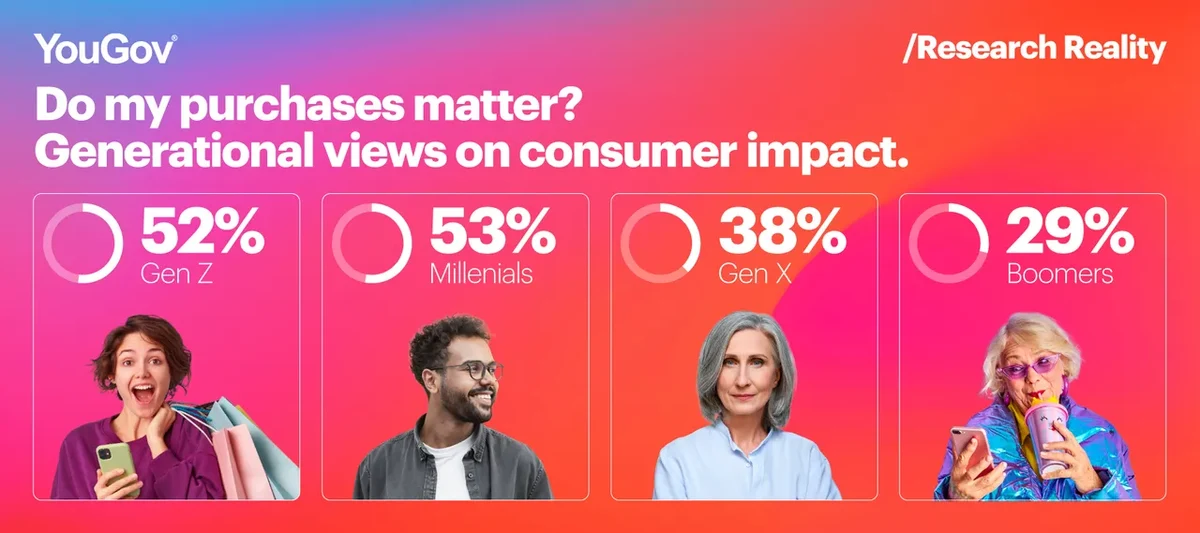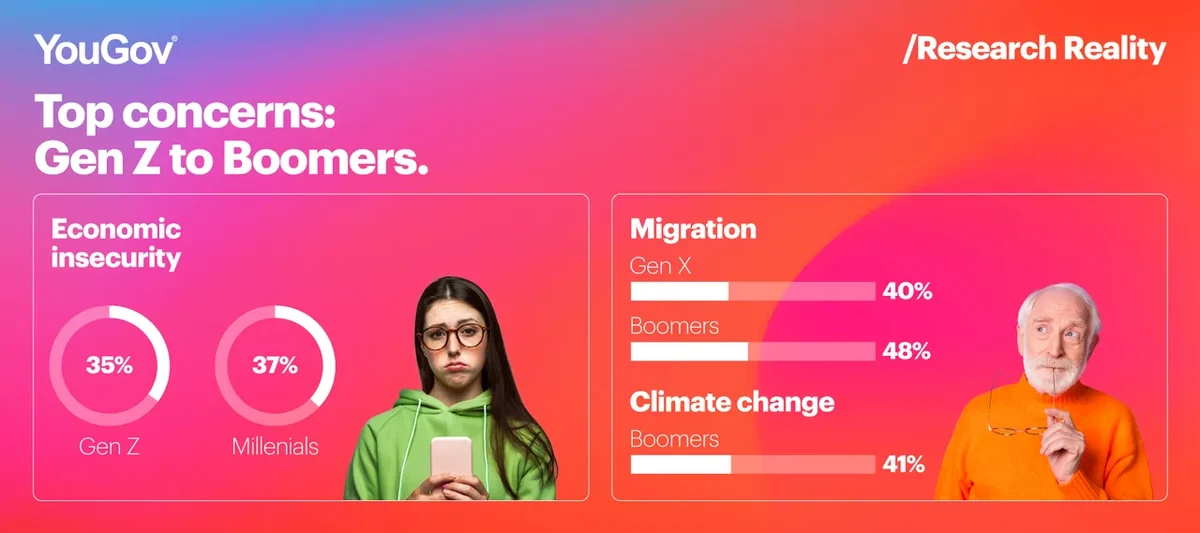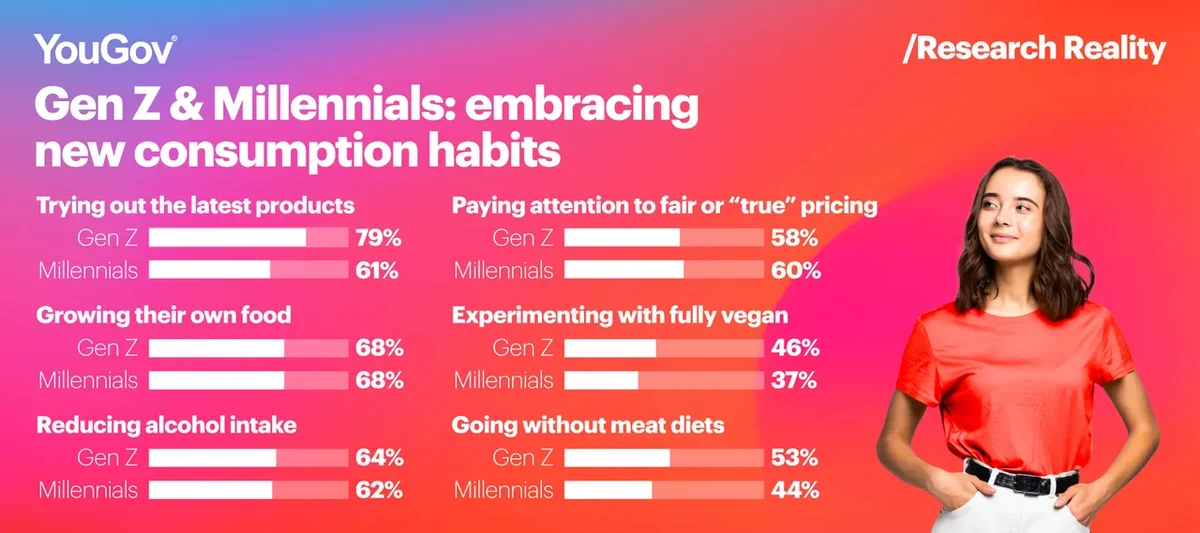Driven by budget, defined by worry
For Dutch consumers, one thing is clear: shopping starts with the wallet. Across all generations, budget-friendliness and the availability of strong discounts or attractive promotions remain the most decisive drivers when making purchasing choices, but what keeps them up at night varies.
- Younger generations – Gen Z and Millennials are primarily preoccupied with economic insecurity — reflecting both their stage of life and the current cost-of-living pressures.
- Older generations, while also value-seeking, are increasingly focused on broader societal and geopolitical issues:
- Migration is the top concern for both Gen X (40%) and Boomers (48%).
- Boomers are also most vocal about climate change (41%).

Worried but powerless? The generational paradox
This generational divide becomes even more apparent when looking at political concerns. Gen Z is consistently the least politically worried, with significantly fewer expressing concern compared to Boomers—61% versus 84% on global issues, and a similar pattern across national and European levels. Millennials fall between, showing slightly more concern than Gen Z, but still less concern than older generations.
Yet, despite this lower level of concern, younger generations — Gen Z (52%) and Millennials (53%) — believe their purchases have a greater impact on society compared to older consumers (Gen X = 38%; Boomers = 29%). This disconnect between low worry and high perceived impact suggests a different kind of engagement — one that may be more value-driven than politically reactive.

Lifestyle meets conscious consumption
These values translate into tangible behavioral shifts. While buying local or national products is a common response across generations, younger consumers take it further by embracing new consumption habits:

Moreover, movements like de-influencing, detoxing, and DIY home care resonate most with Gen Z and Millennials — shaping a consumption pattern where lifestyle, ethics, and affordability intersect.
Implications for brands and retailers
The generational contrasts reveal an important balancing act for FMCG players. Across the board, price remains king — but younger consumers increasingly expect brands to reflect their values, even in times of uncertainty. Older consumers, meanwhile, may not feel empowered but remain deeply concerned about the world around them.
To remain relevant, brands should:
- Tailor messaging and promotions by life stage and concern: highlight value and security for older shoppers, and impact and ethics for younger ones.
- Support local sourcing and transparent pricing, to resonate across age groups.
- Innovate responsibly, offering new products that align with evolving health and sustainability habits without compromising affordability.
Want to know what's really driving shoppers in the Netherlands right now?
Discover what truly motivates today's Dutch shoppers in our latest report: Behavior Change Spring 2025 — The power of choice: Shopper perspectives in times of turmoil and uncover key insights to help you better connect with today's values-driven consumer.
